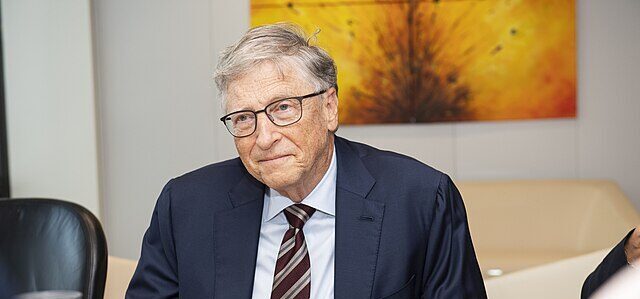Effective altruism (EA) was hard hit last year by the collapse of Sam Bankman-Fried’s FTX. Although the ‘earn-to-give’ approach was deemed to be more effective than simple philanthropy, the blow back from the scandal overshadowed the original positive publicity. There was a jaundiced feeling in the community. Perhaps it was time to take back philanthropy, for the adults to be in charge again.
Philanthropy is pretty simple for Bundeep Singh Rangar. As a technology CEO and investor, he was brought up Sikh where tithing is commonplace. His religion not only places an emphasis on being compassionate to others, but it also encourages timely interventions.
“We are only on the planet for a few short decades, if you want to make a difference, make it now,” he says.
Of course, that includes time if money is short, and money if time is limited. As a student he was involved with Amnesty International and Human Rights Watch. As an entrepreneur, Rangar was also concerned to be socially responsible and founded PrimaFina offering more affordable insurance.
“I wanted people to have peace of mind without it costing a fortune,” he says.
Born in India, Rangar is now based in London, although he travels frequently on business. On one such trip to Dubai, he attended the invite-only Satoshi Roundtable excusive conference in February, where he met a fellow attendee, a monk in an elevator, and in a few short minutes was co-opted onto a philanthropic cause of world peace.
Or course, it was not just any monk that Rangar met but His Eminence Shyalpa Tenzin Rinpoche, the world-renowned Tibetan Buddhist Monk who is building the Universal Peace Sanctuary at a world UNESCO heritage site in Nepal.
To understand more how a short elevator ride could change the course of Rangar’s attention we need to first go back to his career before delving into the monk and the vision behind the Universal Peace Sanctuary.
Rangar got into coding as a child but quickly realised he might be better talking about coding than actually doing it. He was raised in India and Canada but now based in London for the past twenty years
He attended Columbia University in New York and after graduation moved to London to work with Bloomberg where he set up a short news reporting segment on technology. It was the first of its kind in Europe and grew from a weekly five-minute slot to a half hour daily live show called @Bloomberg.
“It was new and as a result I managed to interview a lot of big names – for example Sergey Brin at Google, Steve Ballmer from Microsoft and Steve Case from AOL.”
The whole area was so new that once when booking a studio for an Ecommerce slot, Rangar got the go ahead only to be told he’d spelt commerce wrong. Around the same time, he set up the first index of internet stocks in Europe which became the Bloomberg European Internet Index.
Surrounded by emerging technology, Rangar had an appreciation of what type of new companies were going to survive. In fact, he understood that truly extraordinary companies would also need to be unconventional and disruptive.
He met the founders of Skype and Rangar got it while others were frustrated to understand this new peer to peer networking protocol.
“People wanted to pigeonhole Skype – was it a telephone company or was it a software company? Same as cryptocurrencies where they asked if they were a technology or were they currency. Change frightens people, they prefer to demonise than understand.”
Rangar understands and likes disruption. After leaving Bloomberg in 2000, he moved into finance, notably investing into technology companies. A friend of his encouraged him to buy Bitcoin – after a lavish dinner – and he did but he wished he’d done it before the dinner. This was in 2014 when it was still very hard to buy Bitcoin and Rangar reckoned it would take at least twenty years before it could catch on. Two short years later, the popularity of crypto went to the moon and Rangar quickly pivoted to investing in blockchain based companies.
Today, he is well known as the founder and Group CEO of PremFina, a UK financial inclusion firm that enables affordable purchase of insurance premiums. It’s been financially backed by Canada’s Thomson family of the Thomson Reuters namesake company, Silicon Valley billionaire investor Tim Draper, Japanese e-commerce leader Rakuten as well as financial institutions. Rangar is also the CEO at Fineqia in Canada, which is growing an investment business in digital asset and metaverse related companies. He is a regular commentator in publications such as Bloomberg News, Forbes, The Telegraph and The Times.
He’s an active investor in a variety of blockchain businesses, including IDEO CoLab, the investment subsidiary of global design company IDEO and Wave Digital Assets, a top five regulated manager of digital assets worldwide. Earlier, Rangar setup IXL Holdings that arranged for more than $1 billion in equity and debt financings for firms in the UK, Europe, India and Canada. He is also a founder of IndusView, a London-based consultancy that has advised the Boards of BT, Bloomberg, Hays, Experian, Sage, Saxo Bank, Skype, Tata Consultancy Services and Volkswagen on innovation and growth strategies. He currently sits on the advisory board of the National Crowdfunding & Fintech Association in Canada.
When conducting his due diligence on possible investment opportunities, he focuses on the team.
“No matter what industry or what technology, it’s the people that will make the difference. Even if there are mistakes, misstarts or failures, a good team can pivot and still make a success.
“Give me the right person with a disruptive idea and I’ll back it.”
Which brings us nicely to that elevator in Dubai and the monk.
The conversation that emerged centred on Buddhism, and while Rangar comes from a Sikh family, they always had statues of Budda in his family home. There is also some commonality between the two religions and when His Eminence spoke of the Universal Peace Sanctuary, it just clicked.
His Eminence comes from the Buddhist tradition that sees the consciousness of departed masters transfer to new life, to young children. At the age of four His Eminence was identified as a holy child and grew to be a lineage master and teacher.
READ MORE: Universal Peace Gala opens on Saturday with Tibetan Lama who believes Bitcoin and blockchain are the keys to world harmony
His Eminence founded meditation and teaching centres in the United States, including Buddhafield, the Centre for Enlightenment in Millerton, New York. In Asia, He founded Wencheng Gongzhu International Foundation in Hong Kong (China), and its branches in Taiwan (China) and Malaysia. His Eminence is the abbot of Shyalpa Monastery and Nunnery in Kathmandu, Nepal, where over 150 monks and nuns are in residence, receiving spiritual and secular education. His charitable organizations include the Bhrikuti Himalayan Foundation and the Himalayan Children’s Fund, which support humanitarian and philanthropic activities in the Himalayan region.
After travelling for 35 years, His Eminence recognised that there is no single inclusive sacred place to cater for all religions and none.
“I wanted to create a non-denominational temple where people could find real respect. I want everyone to be able to embrace without difference – like breathing. Everyone’s breath is the same, there is no colour, no caste, no religion.”
His vision for the world is to make peace more fashionable than war. This is his living legacy and he is doing all in his powers to make it happen, which includes extensive travel, talking and interviews.
He doesn’t feel this is a difficult thing to do. “If your priority is to find peace, and I believe everyone’s priority is to find peace, then it can happen. Right now, people are very distracted and cannot find satisfaction and the endless suffering in this world can lead to vicious cycles.
“You cannot take life for granted. This is not a rehearsal. Instead, I believe everyone can see the preciousness of their lives by living their lives unconditionally,” he says.
His Eminence is not promoting a particular religious doctrine or philosophy, rather he is looking to promote the goodness of human nature, to find it in unconditional love.
“The closest and most meaningful way I can describe unconditional love is to compare it to a mother’s love for her child.”
But His Eminence is clear on the purpose of this Sanctuary.
“If everyone donated one dollar then we’d have our Universal Peace Sanctuary, and everyone would be truly part of it.”
The location of the Universal Peace Sanctuary is in Lumbini, Nepal. It will be designed based on a lotus flower and is dedicated to Queen Maya Devi, the mother of Buddha who gave her life to childbirth, the ultimate sacrifice and display of unconditional love.
This is the first time such a truly inclusive space has been planned for humankind. Pre Covid construction began with the foundations and steel structure. A number of major fund raisers are planned with a Gala event in Beverly Hills on May 13 and corporate donations have been pledged. Overall, the cost of the project is just under $100 million.
For Rangar, the lure of Sanctuary with the vision of His Eminence proved too heady a combination. He diverted one of his trips from Dubai to London to attend a convocation ceremony at His Eminence’s monastery in Kathmandu where he witnessed a powerful and spiritual event.
“The graduates were talking about peace and love and spirituality. This is their devotion to the world.
The guiding principles enshrined in the Sanctuary appeal to Rangar.
“If people can come to peace with themselves and find inner harmony, then that will translate into external harmony.”
A few weeks later, he hosted a luncheon for His Eminence in London inviting many preeminent people and with his friend and colleague James Bowater, editor-at-large at Crypto AM and founder of Jade Foundation, pledged support. As part of that initiative, they have promised a 17-foot jadeite statue of Queen Maya Devi – possibly the largest jadeite statue in the world, to grace the Sanctuary.
Rangar is inspired by the legend of King Ashoka, the Indian king, who after participating in bloody battle, embraced Buddhism and treated his subjects humanely. He is credited with remaking the Mauryan Dynasty from a war machine into a society of tolerance and non-violence before his death in 232 BC.
“For me, the way to reach divinity is to create those moments of spiritual experience and the sheer wonder of what you feel but not touch or see. That’s the way God is described in Sikhism, understood via divine experience. His Eminence is looking to create this wow, this wonder, in the Universal Peace Sanctuary.
“I just want to help spread the word.”
Credit:Source link



